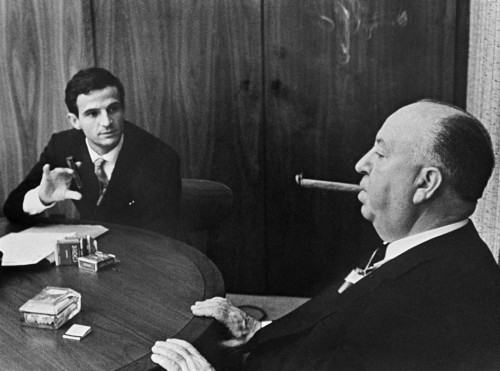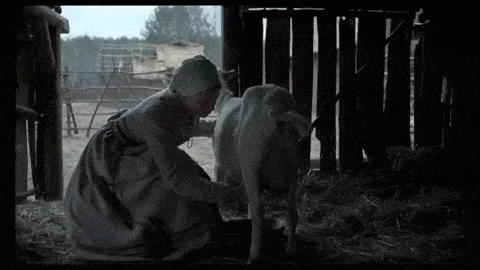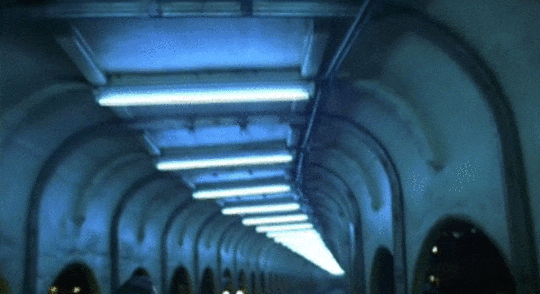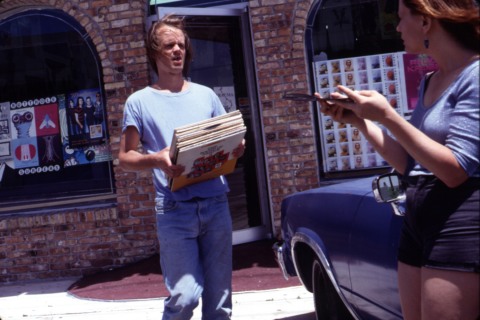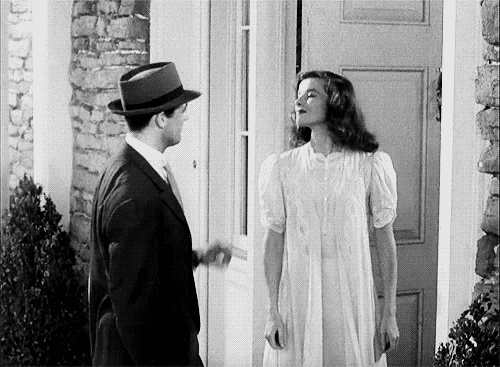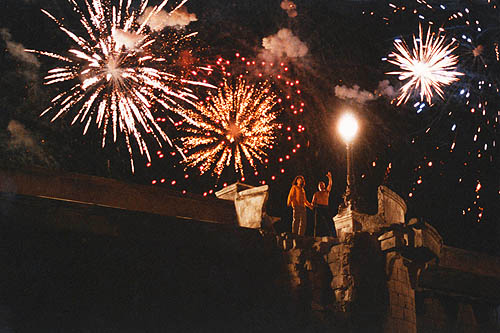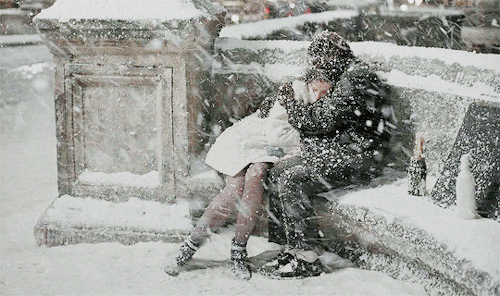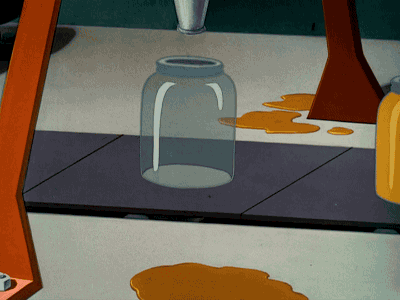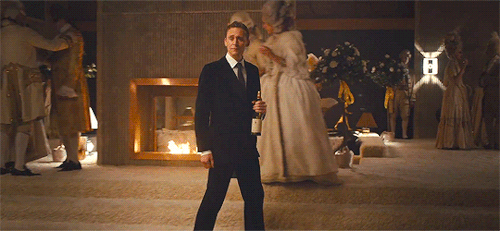I'm back. It's been so much time since I posted here the last time, so I apparently watched hundreds of films since then, but of course I'm not going to revise them all. Let me gust give you a glimpse into my movie watching of today and yesterday. As always with my descriptions of films, they're not reviews, but loose observations, descriptions of my emotional and psychological reactions to them.

Hexen bis aufs Blut gequält [Mark of the Devil] (1970) - (An exploitation film that depicts the witch trials very vividly. It bluntly shows various tortures the alleged witches and sorcerers had to endure if they didn't want to admit their connections with the devil. I never was against exploitation films, but in this case one could say that the graphic images are justified by the sheer fact that these things really took place. The violence hits strong even by today's standards. It's also the ruthlessness and hypocrisy of the witch hunter that certainly hits the nerve of the viewer and even though all of this may seem manipulative, it never crosses the line. Of course, the movie has a plot involving handsomely young Udo Kier falling in love with a woman accused of witchcraft and some other meandering subplots. All in all, a great watch for anybody not afraid of exploitation take on history. If you don't like this kind of films, you better stick with Dreyer's Day of Wrath.)
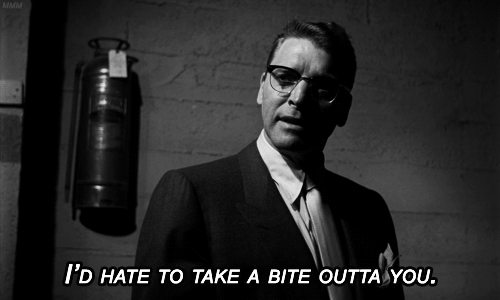
Sweet Smell of Success (1957) - (An amazing late film noir with an unusual threesome (foursome?!) and just as unusual femme fatale. Burt Lancaster plays a honcho not afraid to tell the truth to some of the most important people, but at the same time has a certain weakness. That leads to a certain plot that shall be performed with the help of Tony Curtis. Being as spoilerfree as possible, let me only tell you that the movie is striking thematically just as it is striking visually. There's also that jazzy soundtrack. What I noticed with this movie is a certain freedom. Of acting. Of shooting the movie. May have been a huge influence on Cassavetes when he was directing his Shadows in 1959.)

The Last of England (1987) - I've only seen Derek Jarman's Caravaggio before and thought of it extremely highly, so I approached this experimental feature with very high expectations and it's sufficient to say that they were met if not surpassed. I don't think that the movie really follows any coherent plotline throughout its duration time, but it's still packed with symbolism and separate scenes with a lot of meaning (or just industrial no wave dance with pulsating music and colours, it has this, too). I'm still not sure if some scenes were talking about then contemporary sociopolitical situation in the UK, or were supposed to be haunting prophecies of the future, with a group of people in balaclavas with guns apparently causing some mayhem in town and even shooting a man to death in what seemed like a military platoon execution only that the man didn't look like a military, but like a civil. Then we have a cult of fire, reminescent of Nazi party rallies of the 30's and at some point we even have some German talking and the name "Hitler" mentioned repeatedly. The movie is practically wordless, the narrator speaks in a beautiful poetic way maybe twice or three times through the whole 90 minutes long film. There's also a scene of Tilda Swinton in a wedding dress and two gays having sex on British flag. The editing is daring, harsh, fast. The movie's colours were saturized or tinted to a hauntingly beautiful effect that compared with the grainy quality of the reel resulted in some of the most visually striking moments I've seen in cinema lately.)
You really expect me to post a screen from Blue? Besides, how do I know whether it's a screencap from the movie or just a Paint-coloured canvas?
Blue (1993) - (Now that is the last will of a dying filmmaker left on celluloid. Derek Jarman has always been an experimental filmmaker and this time he reaches cinema's limits by entirely stripping it off its visual flare. Even more a controversial decision as he always was a master of vision. A sensible step since his own vision has been taken away by the illness and trying to relate his art to himself, he also made the film lack in seeing. Since we literally have a static blue image for the whole movie, the sound plays the most important part. The beautiful, poem-like descriptions of the blueness of the universe, as one might call it, are juxtaposed to incredibly rough, down-to-earth, punch-in-the-face descriptions of his suffering with heart-wrenching details. A very sublime work that even if you hate filmmaking-wise you are still forced to respect as it is essentially the artistic testament of an artist. I like to imagine Jarman laying on his deadbed just like Caravaggio is in his movie, although I know the reality might've been way less beautiful. A terribly depressing movie.)
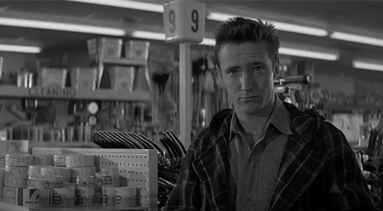
In Cold Blood (1967) - (The black'n'white cinematography is so lavish, polished and outstandingly good that it wasn't so apparent whether or not the other aspects of the film will match it. Thankfully, they do. One thing that immediately caught my attention was the flawless editing. The action oftenly goes on even though a cut has been made. This way the movie seems continuous even though it jumps between scenes in different place or even time. The movie is realised in cold blood just like the protagonists commit their crime. The finale is free of moral plays, but not really rid of subjectivity. A terrific last scene.)
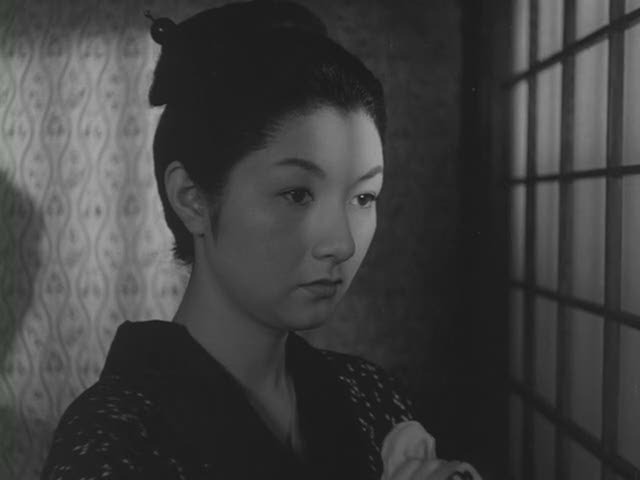
雁 [Wild Geese] (1953) - (Okay, so let's get it straight. It is a melodrama/romance movie, but made in Japanese spirit and with Japanese heart. Japanese melodramas compared to their counterparts of the time from America are fairly superior. Let's take a movie like All That Heaven Allows. Sure, the colours are beautiful and the deer is adorable, but the harlquinesque plot is almost unbearable. Wild Geese just like all Japanese melodramas of the time I've seen are different. It's poignant, but never maudlin. It never feels artificial or pretentious. It has Hideko Takamine and that gigantic close-up on her face in the scene when she meets the student for the first time. A moment to remember. I never witnessed a moment of this kind in All That Heaven Allows (but the deer in the snow scene makes it up a little bit). Maybe I'm overrating it due to my Japanophilia, due to my love for the actress Hideko Takamine, due to the Japanese approach that I find way more effective and close to my heart than the Hollywood approach of All That Heaven Allows. But does it matter? After all movie-watching is subjective. )
PS: Never again. It took me like 2 hours.

Hexen bis aufs Blut gequält [Mark of the Devil] (1970) - (An exploitation film that depicts the witch trials very vividly. It bluntly shows various tortures the alleged witches and sorcerers had to endure if they didn't want to admit their connections with the devil. I never was against exploitation films, but in this case one could say that the graphic images are justified by the sheer fact that these things really took place. The violence hits strong even by today's standards. It's also the ruthlessness and hypocrisy of the witch hunter that certainly hits the nerve of the viewer and even though all of this may seem manipulative, it never crosses the line. Of course, the movie has a plot involving handsomely young Udo Kier falling in love with a woman accused of witchcraft and some other meandering subplots. All in all, a great watch for anybody not afraid of exploitation take on history. If you don't like this kind of films, you better stick with Dreyer's Day of Wrath.)

Sweet Smell of Success (1957) - (An amazing late film noir with an unusual threesome (foursome?!) and just as unusual femme fatale. Burt Lancaster plays a honcho not afraid to tell the truth to some of the most important people, but at the same time has a certain weakness. That leads to a certain plot that shall be performed with the help of Tony Curtis. Being as spoilerfree as possible, let me only tell you that the movie is striking thematically just as it is striking visually. There's also that jazzy soundtrack. What I noticed with this movie is a certain freedom. Of acting. Of shooting the movie. May have been a huge influence on Cassavetes when he was directing his Shadows in 1959.)

The Last of England (1987) - I've only seen Derek Jarman's Caravaggio before and thought of it extremely highly, so I approached this experimental feature with very high expectations and it's sufficient to say that they were met if not surpassed. I don't think that the movie really follows any coherent plotline throughout its duration time, but it's still packed with symbolism and separate scenes with a lot of meaning (or just industrial no wave dance with pulsating music and colours, it has this, too). I'm still not sure if some scenes were talking about then contemporary sociopolitical situation in the UK, or were supposed to be haunting prophecies of the future, with a group of people in balaclavas with guns apparently causing some mayhem in town and even shooting a man to death in what seemed like a military platoon execution only that the man didn't look like a military, but like a civil. Then we have a cult of fire, reminescent of Nazi party rallies of the 30's and at some point we even have some German talking and the name "Hitler" mentioned repeatedly. The movie is practically wordless, the narrator speaks in a beautiful poetic way maybe twice or three times through the whole 90 minutes long film. There's also a scene of Tilda Swinton in a wedding dress and two gays having sex on British flag. The editing is daring, harsh, fast. The movie's colours were saturized or tinted to a hauntingly beautiful effect that compared with the grainy quality of the reel resulted in some of the most visually striking moments I've seen in cinema lately.)
You really expect me to post a screen from Blue? Besides, how do I know whether it's a screencap from the movie or just a Paint-coloured canvas?
Blue (1993) - (Now that is the last will of a dying filmmaker left on celluloid. Derek Jarman has always been an experimental filmmaker and this time he reaches cinema's limits by entirely stripping it off its visual flare. Even more a controversial decision as he always was a master of vision. A sensible step since his own vision has been taken away by the illness and trying to relate his art to himself, he also made the film lack in seeing. Since we literally have a static blue image for the whole movie, the sound plays the most important part. The beautiful, poem-like descriptions of the blueness of the universe, as one might call it, are juxtaposed to incredibly rough, down-to-earth, punch-in-the-face descriptions of his suffering with heart-wrenching details. A very sublime work that even if you hate filmmaking-wise you are still forced to respect as it is essentially the artistic testament of an artist. I like to imagine Jarman laying on his deadbed just like Caravaggio is in his movie, although I know the reality might've been way less beautiful. A terribly depressing movie.)

In Cold Blood (1967) - (The black'n'white cinematography is so lavish, polished and outstandingly good that it wasn't so apparent whether or not the other aspects of the film will match it. Thankfully, they do. One thing that immediately caught my attention was the flawless editing. The action oftenly goes on even though a cut has been made. This way the movie seems continuous even though it jumps between scenes in different place or even time. The movie is realised in cold blood just like the protagonists commit their crime. The finale is free of moral plays, but not really rid of subjectivity. A terrific last scene.)

雁 [Wild Geese] (1953) - (Okay, so let's get it straight. It is a melodrama/romance movie, but made in Japanese spirit and with Japanese heart. Japanese melodramas compared to their counterparts of the time from America are fairly superior. Let's take a movie like All That Heaven Allows. Sure, the colours are beautiful and the deer is adorable, but the harlquinesque plot is almost unbearable. Wild Geese just like all Japanese melodramas of the time I've seen are different. It's poignant, but never maudlin. It never feels artificial or pretentious. It has Hideko Takamine and that gigantic close-up on her face in the scene when she meets the student for the first time. A moment to remember. I never witnessed a moment of this kind in All That Heaven Allows (but the deer in the snow scene makes it up a little bit). Maybe I'm overrating it due to my Japanophilia, due to my love for the actress Hideko Takamine, due to the Japanese approach that I find way more effective and close to my heart than the Hollywood approach of All That Heaven Allows. But does it matter? After all movie-watching is subjective. )
PS: Never again. It took me like 2 hours.
